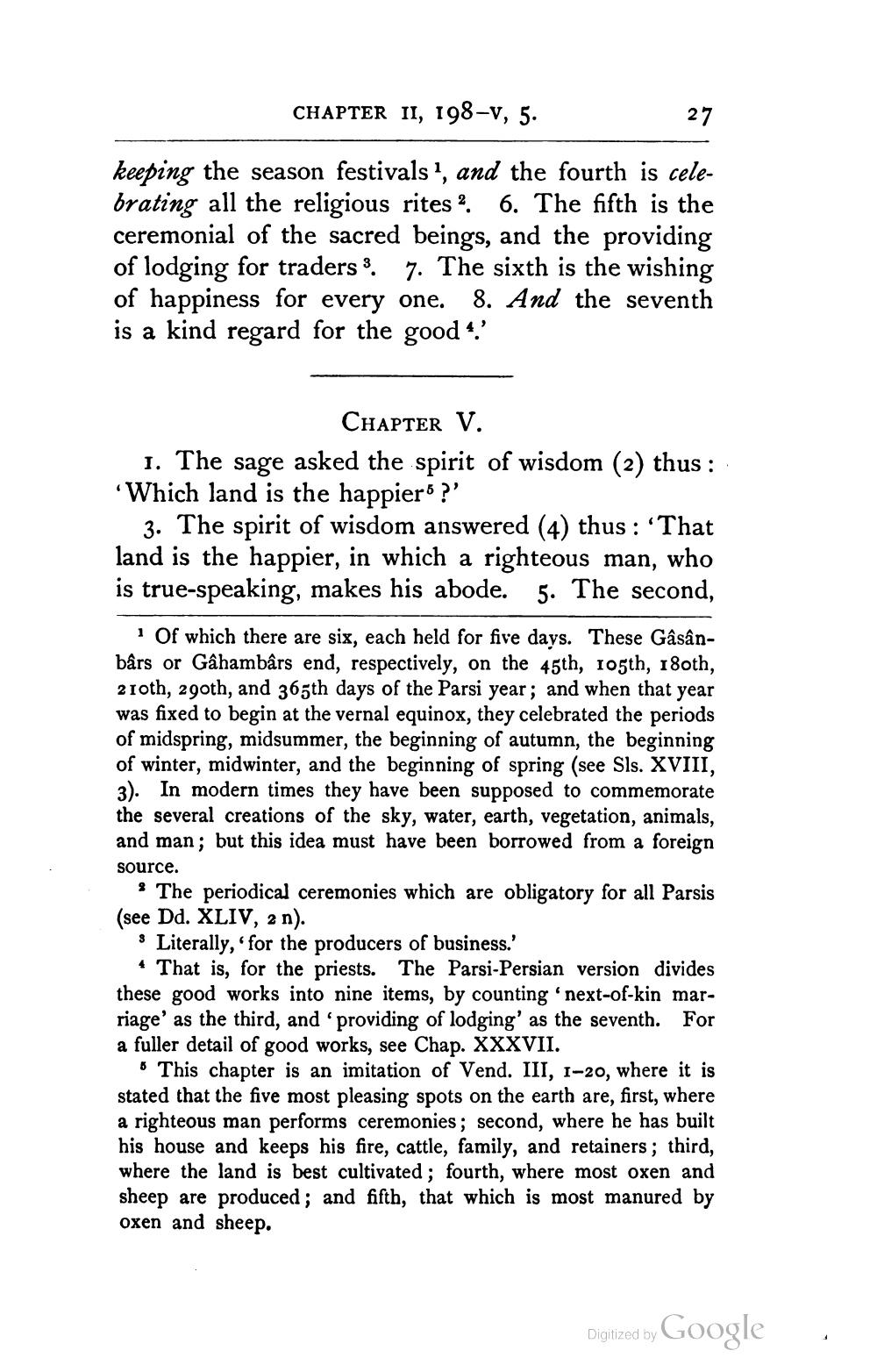________________
CHAPTER II, 198-v, 5.
keeping the season festivals ", and the fourth is celebrating all the religious rites 2. 6. The fifth is the ceremonial of the sacred beings, and the providing of lodging for traders 3. 7. The sixth is the wishing of happiness for every one. 8. And the seventh is a kind regard for the good
Chapter V. 1. The sage asked the spirit of wisdom (2) thus : Which land is the happiers ?
3. The spirit of wisdom answered (4) thus : 'That land is the happier, in which a righteous man, who is true-speaking, makes his abode. 5. The second,
1 Of which there are six, each held for five days. These Gâsânbârs or Gâhambârs end, respectively, on the 45th, 105th, 18oth, 210th, 29oth, and 365th days of the Parsi year; and when that year was fixed to begin at the vernal equinox, they celebrated the periods of midspring, midsummer, the beginning of autumn, the beginning of winter, midwinter, and the beginning of spring (see Sls. XVIII, 3). In modern times they have been supposed to commemorate the several creations of the sky, water, earth, vegetation, animals, and man; but this idea must have been borrowed from a foreign source.
* The periodical ceremonies which are obligatory for all Parsis (see Dd. XLIV, 2 n).
s Literally, for the producers of business.'
+ That is, for the priests. The Parsi-Persian version divides these good works into nine items, by counting next-of-kin marriage' as the third, and providing of lodging' as the seventh. For a fuller detail of good works, see Chap. XXXVII.
o This chapter is an imitation of Vend. III, 1-20, where it is stated that the five most pleasing spots on the earth are, first, where a righteous man performs ceremonies; second, where he has built his house and keeps his fire, cattle, family, and retainers; third, where the land is best cultivated; fourth, where most oxen and sheep are produced ; and fifth, that which is most manured by oxen and sheep.
Digitized by Google




